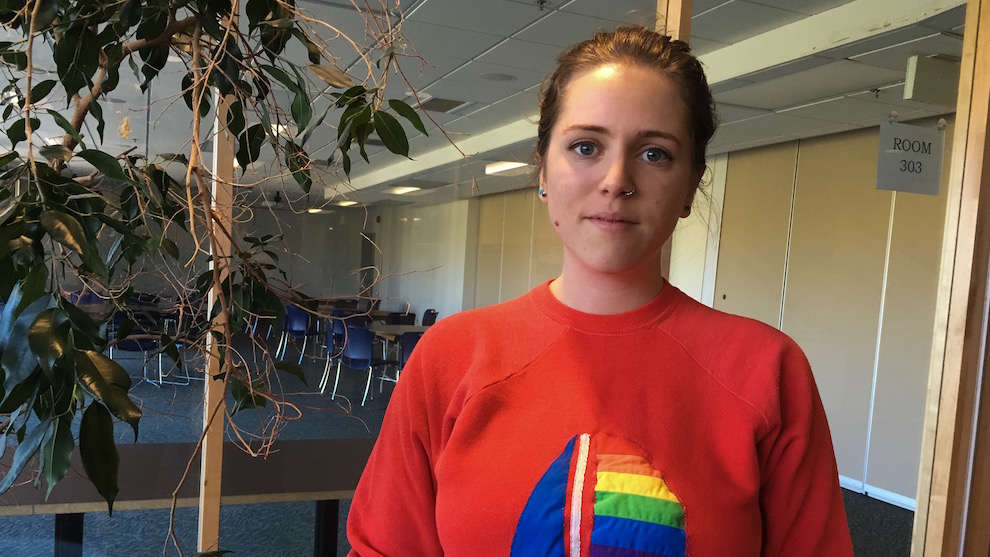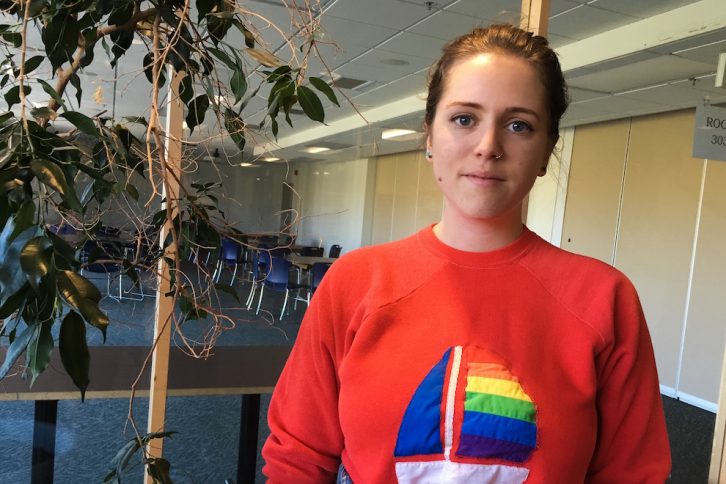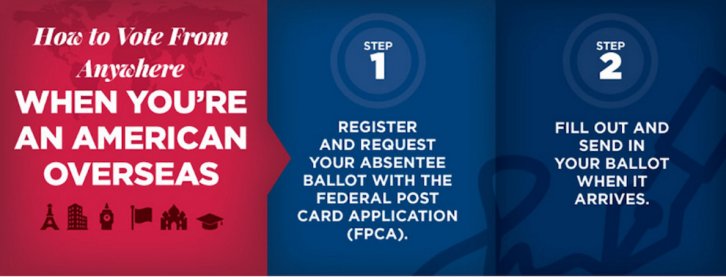U.S. Politics
American students vote for president from Halifax
‘I don’t think anyone should sit this vote out’

caption

caption
Allison Hill attends university in Halifax, but spends her Christmas breaks and summers in California.Being away from home is no excuse for American students to miss out on voting in the upcoming United States’ election, and one woman studying in Halifax is making sure her ballot counts.
“I think that this election is terrifying,” says Allison Hill, an English student at the University of King’s College who’s from California and received a three-page mail-in ballot weeks ago.
“Honestly, the biggest issue for me is not having Donald Trump in the presidency,” she says. “I don’t think anyone should sit this vote out.”
Nate Geoffrion, another American student in Halifax, is sending his ballot back to his hometown of Georgetown, Maine.
“You’re still surrounded by the election while you’re in Canada,” says Geoffrion, who’s studying political science at King’s. “You get plenty of news; everyone talks about it.”
Hill and Geoffrion are two of about 12,450 American students enrolled in Canadian universities, according to the Canadian Bureau for International Education in 2014.
The number of students who can cast their votes in next month’s U.S. election is higher than this figure suggests, as it doesn’t include students with dual Canadian-American citizenship. It’s hard to know exactly how many Americans are getting absentee ballots because individual voters register with their home state.
With Republican candidate Trump and Democrat Hillary Clinton embroiled in a bitter, high-profile fight for the presidency, the U.S. Consulate in Halifax has noticed increased interest in voting.
“More Americans are aware they can vote,” says Marcia Seitz-Ehler, spokesperson for the consulate.
She attributes this to a rigorous campaign by the Federal Voting Assistance Program to tell Americans, especially people living outside the country, that they can and should vote.

caption
A graphic from the Federal Voting Assistance Program website, outlining how to vote with an absentee ballot.Voting matters to Hill because she’ll likely be living in America after her student visa or post-grad work visa expires.
“I eventually want to move back to the States permanently, probably,” says Hill.
As she votes, she’s concerned about public health care “especially as someone who within the next four years … will have to figure out my own healthcare.”
Geoffrion doesn’t know if he’s going to move back to the States after he’s out of university, but like Hill, he’s worried how the election will affect the country’s public services and social welfare.
“I think that America is kind of falling behind in some basic social support mechanisms that I think are common sense,” says Geoffrion. “I’m thinking about universal health care, higher minimum wages, a lot of things.”
Whether he lives in the States or not, his family still has to live under the next president’s administration.
“It’s a running joke with my family that if Donald wins the election, they’re going to move up to live with me,” says Geoffrion.
There’s still time for Americans living in Canada to obtain an absentee ballot. They can go to www.fvap.gov to register with their home state and get information about voting.

